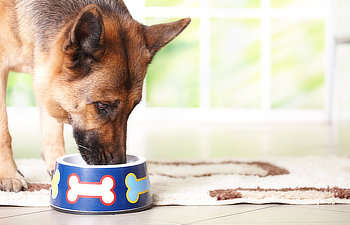
- High-Quality Diet: Feed your dog a high-quality, nutritionally balanced diet that supports gut health. Look for dog foods that contain high-quality proteins, whole grains, and a variety of fruits and vegetables. Avoid foods with artificial additives, fillers, and excessive carbohydrates.
- Probiotics: Consider adding probiotics to your dog’s diet. Probiotics are beneficial bacteria that promote a healthy gut microbiome. They can help restore and maintain a balanced gut flora, improving digestion and nutrient absorption. Consult with your veterinarian to choose the right probiotic supplement for your dog.
- Prebiotics: Include prebiotic foods or supplements in your dog’s diet. Prebiotics are non-digestible fibers that provide nourishment to the beneficial bacteria in the gut. Foods like sweet potatoes, oats, and bananas contain natural prebiotics that can help support a healthy gut.
- Avoid Overfeeding: Be mindful of portion control and avoid overfeeding your dog. Overfeeding can lead to digestive issues and an imbalance in the gut microbiome. Follow your veterinarian’s guidelines for appropriate portion sizes based on your dog’s age, size, and activity level.
- Slow Feeding: Consider using puzzle feeders or slow-feed bowls to slow down your dog’s eating pace. Eating too quickly can lead to indigestion and gastrointestinal discomfort. Slow feeding allows for better digestion and nutrient absorption.
- Hydration: Ensure your dog has access to fresh, clean water at all times. Adequate hydration is essential for maintaining a healthy digestive system. Water helps regulate bowel movements and prevents constipation.
- Regular Exercise: Regular physical activity supports overall health, including gut health. Exercise helps stimulate intestinal motility and can prevent constipation. Engage your dog in daily exercise appropriate for their breed, age, and energy level.
- Minimize Stress: Minimize stress in your dog’s life, as stress can affect gut health. Provide a calm and safe environment, establish a routine, and offer mental stimulation to keep stress levels low.
- Regular Veterinary Check-ups: Schedule regular veterinary check-ups to monitor your dog’s gut health and overall well-being. Your veterinarian can provide guidance on maintaining a healthy gut and address any concerns or issues.
- Avoid Harmful Substances: Keep your dog away from harmful substances, including toxic plants, household chemicals, and certain foods that can disrupt the gut. Chocolate, grapes, onions, and artificial sweeteners are examples of foods that can be toxic to dogs.
Remember, it’s important to consult with your veterinarian for personalized advice and guidance on improving your dog’s gut health. They can provide specific recommendations based on your dog’s individual needs and health condition.
Posted on behalf of






